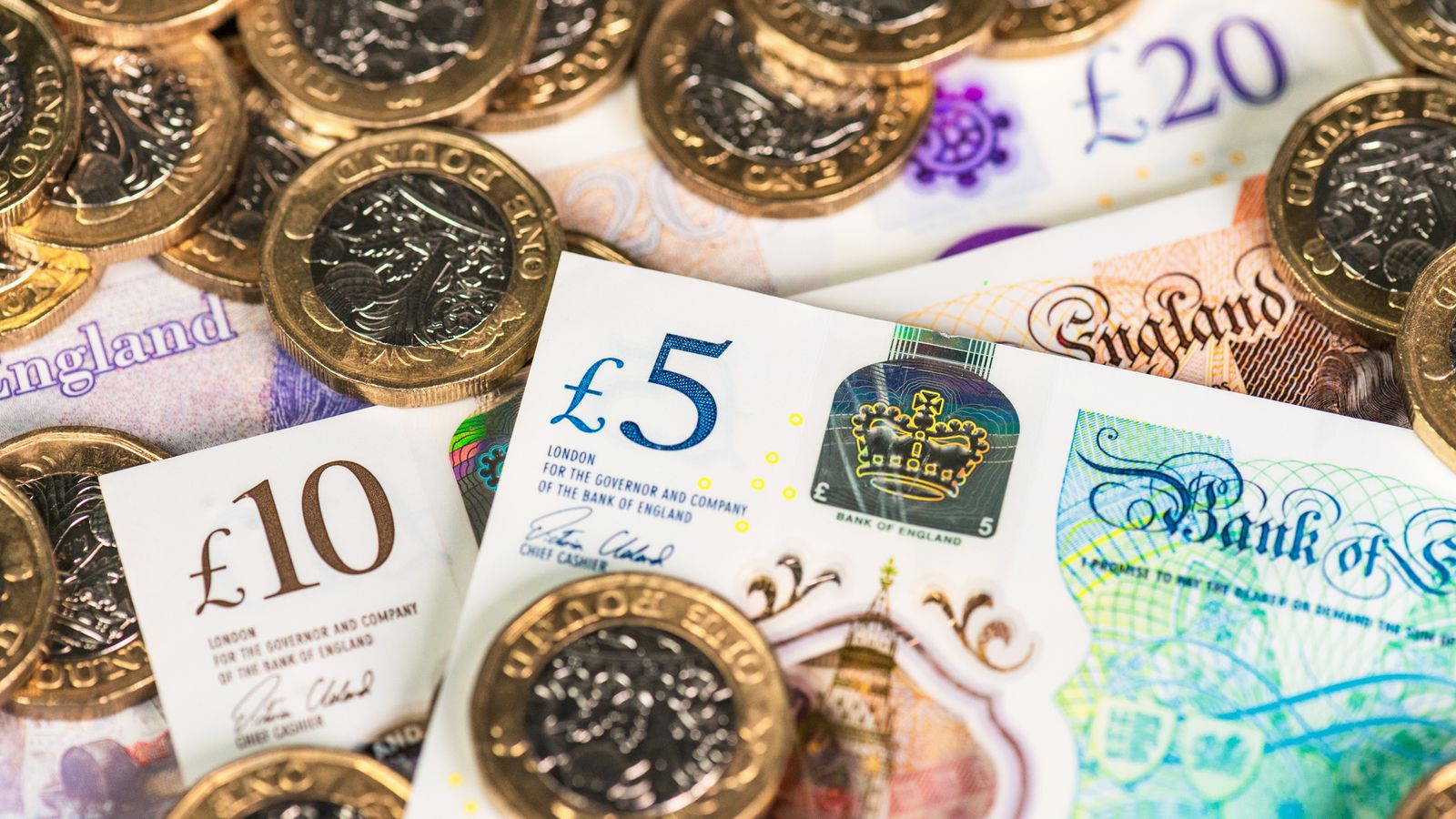The banking sector is being warned it faces penalties if it does not secure free access to cash for the UK population, including businesses, following waves of branch closures over more than a decade.
Hours after Sky News revealed the Financial Conduct Authority (FCA) was to be given powers to fine banks that fail to provide free access to cash, the Treasury confirmed the guidelines the industry was expected to follow.
The legal framework showed that no person or business should be further than three miles away from facilities to withdraw or deposit cash including a cash machine, otherwise known as an ATM.
It also pledged that no customers should face additional or hidden charges for the services and that if a facility is being withdrawn, a replacement should be put in place before the closure takes place.
The move follows a backlash against the disappearance of physical banking sites with charities, MPs and consumer groups long arguing the vulnerable, particularly the elderly, are being denied face-to-face banking services in their communities.
The issue has dogged the sector since the financial crisis of 2008 when branch closures, as part of cost-cutting measures, gathered pace.
The industry has, in more recent times, blamed the surging use of digital banking services by consumers and businesses for culls to branch numbers.
Unlawful ‘de-banking’ to be investigated – as specific communities warn of being disproportionately affected
Shawbrook plots £3.5bn merger with Co-operative Bank
Banks will have to justify why they’re offering low interest rates under new rules
It argues that many are not being used enough to make them financially viable.
Figures released last month by the Unite union suggested more than 6,000 branches had been lost since 2015 alone, with other sites or post offices taking up the slack.
Industry statistics showed there were 51,272 cash machines in the UK last year, 78% of which were free to use.
The government placed access to deposit and withdrawal facilities under the auspices of the FCA for the first time last year.
While the regulator will be given the power to fine banks which fail to adhere to the new guidelines on access to cash, it has previously found there is little cause for immediate alarm.
Its research, published in May, showed 96.3% of the UK population currently lived within 1.24 miles of a free-to-use cash access point, with 99.8% within 3.1 miles.
The government said in its statement: “As it stands, the vast majority of people living in urban areas can access cash deposit and withdrawal services within one mile; with rural dwellers around three miles away.
“Today’s policy statement makes clear that the FCA should use its powers to maintain this level of coverage while recognising that needs may differ by location and change over time.”
Economic Secretary to the Treasury, Andrew Griffith, added: “Whilst the growing choice and convenience of digital payments is great, cash has an important and continuing role to play.
“That’s why we are taking action to protect access to cash in law and laying out that this means fee-free withdrawals and the availability of cash facilities within a reasonable distance.
Be the first to get Breaking News
Install the Sky News app for free
“People shouldn’t have to trek for hours to withdraw a tenner to put in someone’s birthday card – nor should businesses have to travel large distances to deposit cash takings.
“These are measures which benefit everyone who uses cash but particularly those living in rural areas, the elderly and those with disabilities.”
Read more on Sky News:
Profits at UK firms yet to fully recover from pandemic
ChatGPT shows ‘significant’ left-wing bias, study finds
John Howells, the chief executive of ATM operator LINK, said the plans would complement the body’s existing commitments to ensure every high street gets free access to cash.
“The UK is not ready to become a cashless society, so it’s good to see these rules become law,” he added.
Jenny Ross, editor of Which? Money, welcomed the measures but said they needed to go further.
“The government must put in place measures which ensure those who want to withdraw or deposit cash are appropriately served in their local communities.
“The Financial Conduct Authority must make use of its new powers to ensure banks meet their obligations and stand ready to direct them to address any gaps.”










